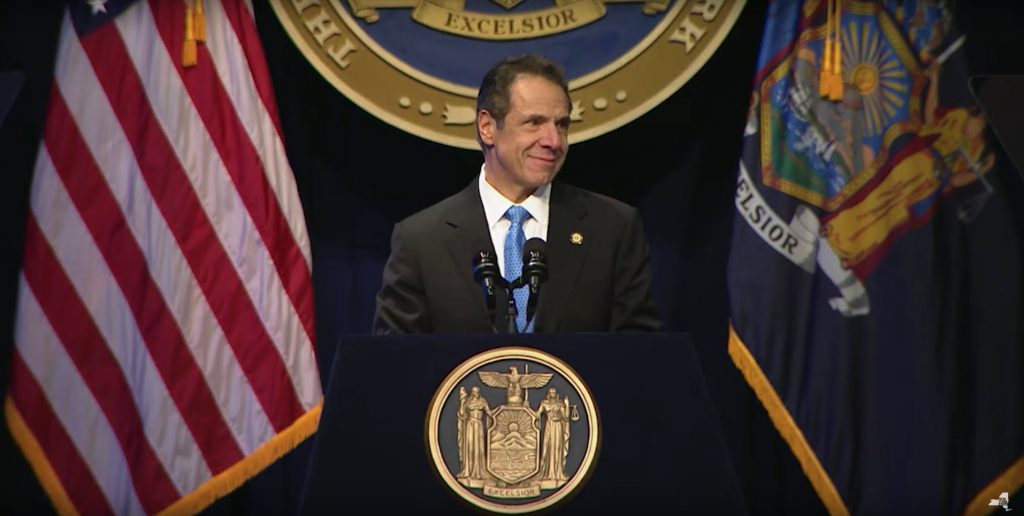More New York state students may receive college tuition help based on Gov. Andrew Cuomo’s recent proposal to expand the Excelsior Scholarship.
The proposal was announced during Cuomo’s 2020 State of the State address on Jan. 8, in which he announced his plan to raise the scholarship’s eligibility threshold from its current amount of $125,000 to $150,000 of adjusted gross family income. The scholarship was first implemented in 2017 and provides tuition awards to eligible students who attend New York state’s public colleges and universities at SUNY and CUNY. According to the SUNY website, this scholarship, in combination with other student financial aid programs, can allow students to attend a SUNY college tuition-free.
Supporters of the proposal note the change will benefit additional students and families. In a news release, Binghamton University President Harvey Stenger said the scholarship’s expansion opens opportunities for universities themselves.
“By removing the burden of tuition for families making $150,000 or less, we can attract more talented, qualified students to our campuses who may have been discouraged by the rising costs of attending college,” Stenger said. “I thank the governor for being a champion for affordable education in New York.”
Representatives from other SUNY campuses expressed similar sentiments.
“I am excited about many of the initiatives outlined in Cuomo’s State of the State address because they align so closely with SUNY Delhi’s values and progressive approach to education,” SUNY Delhi President Michael Laliberte wrote in a statement. “The expansion of opportunity programs, early college programs and the Excelsior Scholarship have potential to positively impact our students and New York residents in making a SUNY education more accessible and affordable than ever before.”
SUNY Chancellor Kristina Johnson also praised the move, writing in a statement that it makes “a further financial commitment to higher education opportunity programs.”
But despite the praise that followed the announcement, criticism of the Excelsior Scholarship, which comes with strict requirements for qualifying applicants, remains. When the program first began in 2017, some voiced concerns that the scholarship’s contract was convoluted and criticized the scholarship’s requirement that those who accept it live and work in New York state after graduation for the same length of time that they received assistance. If an individual moves out of state, the scholarship is converted into an interest-free 10-year loan. Others noted that the scholarship does not cover costs associated with tuition, such as room and board, calling into question its reputation as a truly accessible college program.
Devon Close, a junior majoring in integrative neuroscience, said the most recent change is sure to be beneficial. Still, he noted the limitations of the scholarship.
“The Excelsior Scholarship is great, and making it so that more people are eligible for help with their college tuition is obviously something very positive,” Close said. “However, it is also important to remember that the scholarship is meant to help with tuition, and unfortunately, because there are a lot more costs to college than just tuition, changes like this one need to be looked at as as only a start to better college affordability rather than a complete solution.”



